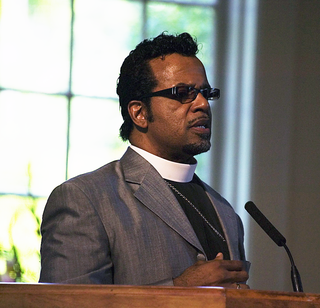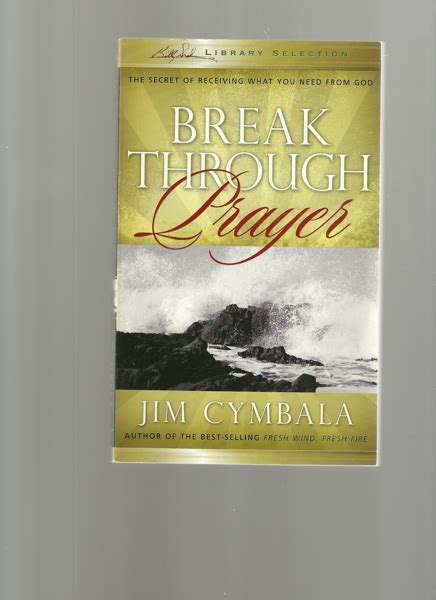A Quote by John Ortberg
The Bible does not say you are God’s appliance; it says you are his masterpiece. Appliances get mass-produced.
Related Quotes
The atheist does not say 'there is no God,' but he says 'I know not what you mean by God; I am without idea of God'; the word 'God' is to me a sound conveying no clear or distinct affirmation. ... The Bible God I deny; the Christian God I disbelieve in; but I am not rash enough to say there is no God as long as you tell me you are unprepared to define God to me.
But the Bible says that the unreached will be judged on a quite different basis than those who have heard the gospel. God will judge the unreached on the basis of their response to His self-revelation in nature and conscience. The Bible says that from the created order alone, all persons can know that a Creator God exists and that God has implanted His moral law in the hearts of all persons so that they are held morally accountable to God (Rom. 1.20; 2.14-15). The Bible promises salvation to anyone who responds affirmatively to this self-revelation of God
The Bible nowhere says that animals are just made for human use. It does not say that the whole earth is just ours to do with as we like. Neither does it say that God's sole interest is with the human species. We cannot allow such an important and influential book to become the preserve of those who want to exploit animals. The Bible needs to be read, studied, and reclaimed for the animals.
God considers this land to be His. You read the Bible and He says 'this is my land' and for any Prime Minister of Israel who decides he is going to carve it up and give it away, God says, 'no, this is mine'... He was dividing God's land and I would say woe unto any Prime Minister of Israel who takes a similar course to appease the EU, the United Nations, or the United States of America. God says 'this land belongs to me. You'd better leave it alone.'
It is often said in the Bible that God spake unto Moses, but how do you know that God spake unto Moses? Because, you will say, the Bible says so. The Koran says, that God spake unto Mahomet, do you believe that too? No. Why not? Because, you will say, you do not believe it; and so because you do, and because you don't is all the reason you can give for believing or disbelieving except that you will say that Mahomet was an impostor. And how do you know Moses was not an impostor?
God in His answers to prayer often says "Yes." Sometimes He says "Wait." Often He says "No." In any case, His will is done, and true faith is to believe that what happened has happened for the best. If one does not take that attitude, he is setting his personal desire against the wisdom of God. Oftentimes we confuse with faith merely that which we desire.
Now, which am I to believe, a book that any impostor might make and call the Word of God, or the creation itself which none but an Almighty Power could make? For the Bible says one thing; and the creation says the contrary. The Bible represents God with all the passions of a mortal, and the creation proclaims him with all the attributes of a God.
Does the Bible ever say anywhere from Genesis to Revelation, 'My house shall be called a house of preaching'? Does it ever say, 'My house shall be called a house of music'? Of course not. The Bible does say, 'My house shall be called a house of prayer for all nations'. Preaching, music, the reading of the Word - these things are fine; I believe in and practice all of them. But they must never override prayer as the defining mark of God's dwelling. the honest truth is that I have seen God do more in people's lives during ten minutes of real prayer than in ten of my sermons.




































